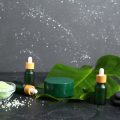Introduction to Serums: The British Approach
In recent years, serums have surged in popularity throughout the UK, becoming a staple on bathroom shelves from Brighton to Edinburgh. But what’s driving this fascination with these concentrated skincare elixirs? For British consumers, beauty routines are increasingly focused on efficacy and simplicity—gone are the days of overly complicated regimens and heavy creams. Instead, there’s a marked shift towards products that deliver targeted results with minimal fuss. Serums, with their lightweight textures and potent active ingredients, fit perfectly into this evolving landscape. In the British market, where skin concerns like pollution-induced dullness and unpredictable weather fluctuations are common, serums stand out for their ability to offer bespoke solutions. Whether it’s hydration, brightening, or anti-ageing, discerning UK shoppers seek serums that blend scientific innovation with trusted ingredients—often favouring homegrown brands that champion transparency and sustainability. This unique blend of priorities is reshaping how serums are formulated, marketed, and integrated into daily British beauty rituals.
2. Cutting-Edge Science: How Serums Work on Skin
Serums have revolutionised skincare by utilising advanced scientific principles, many of which have been pioneered by British research institutions and cosmetic chemists. At the heart of their efficacy lies an understanding of molecular size, skin absorption, and rigorous clinical validation.
Molecular Size Matters
One of the defining features of serums is their lightweight formulation, designed to deliver active ingredients deeper into the skin. Unlike traditional creams, serums contain smaller molecules that penetrate the stratum corneum with greater efficiency. This allows potent actives such as vitamin C, peptides, and hyaluronic acid to reach target layers for enhanced results.
| Product Type | Molecular Size | Skin Penetration Depth |
|---|---|---|
| Serum | Small (low molecular weight) | Deeper layers (dermis) |
| Cream/Lotion | Larger (high molecular weight) | Surface/upper epidermis |
The Absorption Advantage
British skincare brands often leverage encapsulation technology—such as liposomes or nano-carriers—to further enhance ingredient delivery. These innovations ensure actives remain stable and are released gradually, maximising efficacy while minimising irritation. The result is visible improvement in skin texture, tone, and hydration without overwhelming sensitive British complexions often affected by environmental factors like wind and pollution.
Evidence-Based Claims: The British Approach
Transparency and scientific rigor are hallmarks of the UK’s skincare industry. Leading brands collaborate with universities and dermatological institutes to substantiate claims through peer-reviewed studies and consumer trials. For instance, you’ll often find published data on reduction in fine lines or improved radiance after four weeks’ use—backed by real-world testing under typical British climate conditions.
Key Takeaway for British Consumers:
When choosing a serum, look for products highlighting molecular science and clinically validated results. Trust in brands that invest in research collaborations with British experts to ensure you’re applying cutting-edge formulations tailored for UK skin needs.

3. Key Ingredients in British Serums: An In-Depth Breakdown
Modern British serums are a blend of scientific innovation and nature-inspired wisdom, making ingredient selection a key point of distinction. Here’s a closer look at the powerhouse actives shaping the UK skincare scene, and why they’re particularly suited to address common British skin concerns.
Niacinamide: The Multi-Tasking Marvel
One of the most celebrated ingredients in UK serums is niacinamide (vitamin B3). Praised for its versatility, niacinamide is clinically proven to tackle uneven tone, enlarged pores, and dullness—issues exacerbated by Britain’s often unpredictable climate and urban pollution. Its anti-inflammatory properties also make it ideal for sensitive or redness-prone British complexions. Regular use helps reinforce the skin barrier, essential for withstanding harsh winds and temperature fluctuations.
Hyaluronic Acid: Hydration Hero
Hyaluronic acid has cemented its place as a hydration staple in UK skincare routines. This molecule attracts and retains up to 1,000 times its weight in water, providing much-needed moisture during both cold winters and drier summers. British brands frequently favour multiple molecular weights of hyaluronic acid to ensure both surface-level plumping and deep-layer hydration—a smart approach given the UKs variable humidity levels. The result? Skin that feels supple, bouncy, and less prone to flakiness or tightness.
Native Botanicals: Harnessing Local Heritage
The British Isles are rich in botanicals with centuries-old reputations for soothing and revitalising skin. Modern formulations increasingly spotlight homegrown extracts such as chamomile, rosehip, and sea buckthorn. These ingredients are packed with antioxidants and vitamins that help combat environmental stressors like pollution and UV exposure—two leading concerns among city-dwelling Britons. Additionally, many native botanicals offer calming benefits, echoing the traditional remedies passed down through generations.
Sustainability Meets Efficacy
A notable trend is the preference for ethically sourced, locally grown actives—a nod to both sustainability and efficacy. By reducing ingredient miles and prioritising biodiversity, British brands ensure fresher extracts with potent benefits while supporting local farming communities.
Suitability for British Skin Concerns
The blend of these ingredients addresses typical British skin challenges: sensitivity from weather changes, dehydration from indoor heating, and dullness caused by limited sunlight. Whether your skin is oily, dry, or combination, choosing serums formulated with these hero actives ensures your routine is tailored to Britain’s unique environmental demands.
4. Homegrown Innovations: UK Researchers and Brands Leading the Way
In the ever-evolving world of skincare, the United Kingdom stands out as a powerhouse of research-driven advancements and homegrown ingenuity. British brands and local laboratories are at the forefront of serum science, combining time-honoured expertise with cutting-edge discoveries. Let’s take a closer look at the key players and innovations shaping the British serum market.
British Brands Redefining Serum Science
UK-based skincare labels have consistently raised the bar with their focus on quality ingredients, ethical sourcing, and scientific validation. These brands often collaborate closely with universities and independent research institutes to develop serums that target specific skin concerns prevalent in British climates—think dehydration, dullness, and pollution-related stress.
| Brand | Signature Serum Innovation | Notable Local Ingredient |
|---|---|---|
| No7 (Boots) | Matrixyl 3000+ peptide complexes for anti-ageing | Sustainable British plant extracts (e.g., white lupin) |
| The Ordinary (DECIEM UK) | Transparency in single-ingredient serums | Cold-pressed British borage seed oil |
| Pai Skincare | Formulations for sensitive skin, certified organic | Bristol-grown echium oil rich in omega fatty acids |
| Aurelia London | Probiotic technology for barrier support | British chamomile & baobab extracts |
Local Labs and University-Driven Breakthroughs
The UK’s robust academic landscape plays a pivotal role in serum innovation. Universities such as UCL, King’s College London, and the University of Manchester frequently partner with beauty brands to translate laboratory findings into commercially viable products. For example, advances in peptide synthesis from Cambridge labs have led to more stable and effective anti-ageing formulas, while Oxford researchers have contributed to antioxidant extraction techniques now utilised in premium serums.
Spotlight on Cutting-Edge Research Collaborations:
- Peptide Technology: Collaboration between Boots No7 and the University of Manchester has resulted in patented peptide blends proven to stimulate collagen production.
- Antioxidant Innovation: Partnerships with Oxford-based biotech firms have enabled more potent vitamin C derivatives for improved skin tone evenness.
- Sustainable Sourcing: Local start-ups are working alongside agricultural departments to cultivate native botanicals with high bioactive content for inclusion in next-gen serums.
Why British Innovation Matters for Your Skin
The synergy between British brands, local labs, and academic excellence ensures that UK-made serums are not only tailored to address specific environmental challenges but also adhere to rigorous safety and efficacy standards. When choosing a serum formulated or manufactured in Britain, you’re investing in ingredient transparency, pioneering science, and a commitment to sustainable progress—all rooted firmly in homegrown expertise.
5. How to Choose a Serum: British Skin Types and Climate Considerations
When selecting a serum in the UK, it’s essential to consider not only your individual skin type but also the unique challenges posed by the British climate and urban environment. Britain’s diverse population brings with it a wide range of skin tones and concerns, from sensitivity and redness to hyperpigmentation and oiliness. Moreover, the UK’s famously unpredictable weather—characterised by cool, damp winters and mild, variable summers—means that your skin’s needs may change dramatically throughout the year.
Seasonal Shifts: Adjusting Your Serum Routine
In winter, central heating and biting winds can leave skin feeling dehydrated and tight. Look for serums containing hydrating ingredients such as hyaluronic acid or British-grown oats, which help lock in moisture and soothe irritation. For summer months, lightweight formulations with antioxidants like vitamin C or native sea buckthorn are ideal for protecting against increased pollution exposure and supporting radiance without clogging pores.
Sensitivity and Pollution: Urban Skin Concerns
Bigger cities like London or Manchester often grapple with higher levels of air pollution, which can trigger inflammation, dullness, or sensitivity. If you spend time in urban areas, opt for serums rich in niacinamide or polyphenols from locally sourced blackcurrant or elderberry; these help strengthen the skin barrier and neutralise free radicals caused by environmental stressors.
Matching Serums to Your Unique Skin Tone
The UK’s multicultural landscape means it’s important to find serums that cater to all skin tones. If your skin is prone to post-inflammatory hyperpigmentation (more common in deeper skin tones), seek out gentle brightening ingredients such as liquorice root extract or stabilised vitamin C. For those with fairer complexions prone to redness, look for calming botanicals like chamomile or calendula grown on British farms.
Top Tips for Making an Informed Choice
Always patch test a new serum before full application, especially if you have sensitive skin. Check ingredient lists for potential allergens or irritants, and avoid excessive fragrance. Finally, remember that consistency is key; adapting your serum selection as seasons shift will help keep your skin resilient, radiant, and uniquely British—come rain or shine.
6. Sustainable and Ethical: The Shift in British Serum Formulations
In recent years, the British beauty landscape has undergone a significant transformation, with sustainability and ethical sourcing now at the heart of serum development. Modern consumers are increasingly eco-conscious, demanding transparency not only in ingredient efficacy but also in how those ingredients are sourced and produced. As a result, many leading UK skincare brands are reformulating their serums to feature eco-friendly, cruelty-free, and locally sourced actives. This shift is particularly evident in the rising popularity of plant-based peptides, marine botanicals from British coastal waters, and upcycled fruit extracts from local agriculture. These ingredients not only support skin health but also minimise environmental impact by reducing transportation emissions and supporting local economies.
Furthermore, cruelty-free testing protocols have become a standard expectation for British consumers. Brands that carry certifications such as Leaping Bunny or The Vegan Society are increasingly favoured by those who wish to align their skincare routines with their values. Packaging innovation is another area where British serum manufacturers shine—refillable glass bottles, biodegradable cartons, and minimalistic designs are now common across both luxury and high-street brands. Choosing serums made with these principles means you’re not just investing in your skin’s future but also contributing to a more ethical and sustainable world—a distinctly modern British approach to beauty.
7. Conclusion: The Future of Serums in the UK
To summarise, British innovations have positioned the UK at the forefront of serum science, blending a legacy of scientific excellence with a focus on locally sourced ingredients and sustainability. We’ve seen how research-driven formulations—featuring British botanicals like heather extract and seaweed, alongside advanced actives such as peptides and stabilised vitamin C—deliver targeted results that appeal to discerning consumers. As awareness grows around ingredient transparency, efficacy, and environmental impact, British brands are likely to lead by example, championing traceable sourcing and eco-friendly packaging.
Looking forward, the next generation of serums developed in the UK will undoubtedly harness cutting-edge technology, including biotechnology and personalised skincare solutions tailored to individual skin needs. Expect to see further collaboration between universities, laboratories, and heritage brands, resulting in new actives that address emerging concerns like urban pollution and digital ageing.
For those seeking high-performance serums with a distinctly British approach, it’s an exciting time. By combining traditional wisdom with rigorous scientific testing, the future holds innovative formulas that deliver real results while respecting both our skin and the planet.


